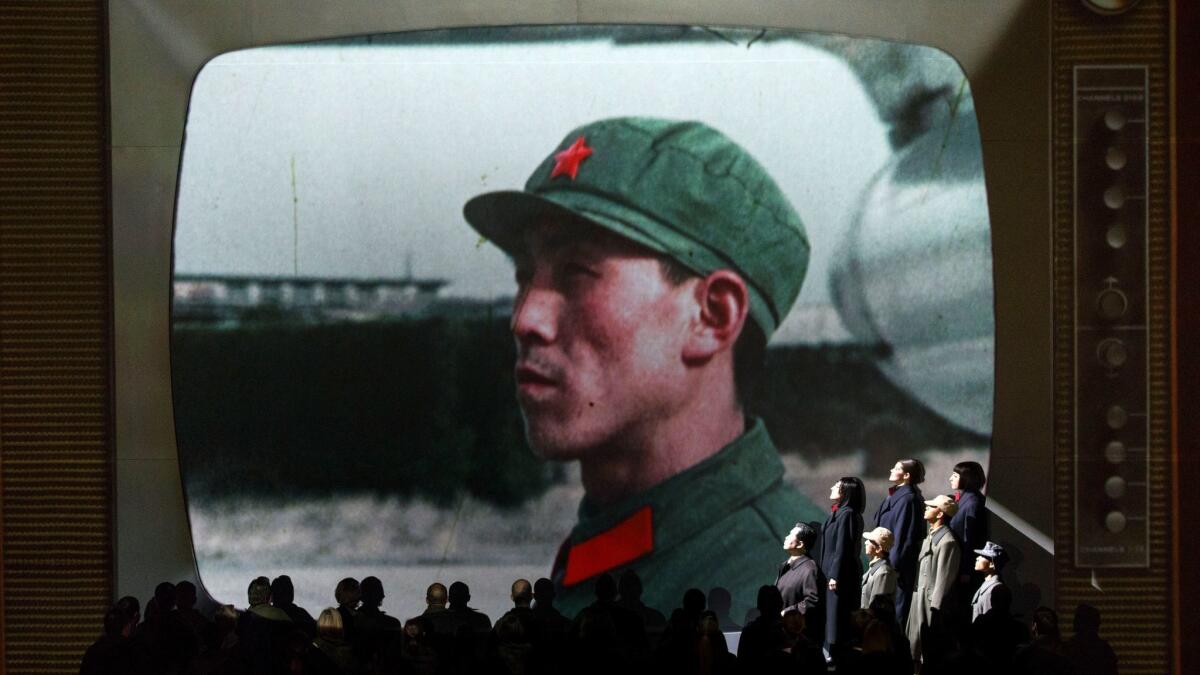For a giant like the L.A. Phil, how does NEA funding factor into the big picture?

The Los Angeles Philharmonic is hardly a shoestring operation, with its $255-million endowment and an annual budget of $120 million for the 2015-16 season. The 106-member orchestra led by Gustavo Dudamel is considered one of the most preeminent in the world, not to mention the most financially secure in the country.
So why, then, with its ticket sales and network of donors, would the L.A. Phil seek funding from the National Endowment for the Arts?
Hereâs one answer: to push the art of music forward. For its 2016-17 season, the L.A. Phil received two NEA grants, one of $90,000 for its in/Sight program pairing video art with orchestral and choral music â one way the orchestra has been drawing new audiences to Walt Disney Concert Hall. The funds went toward artist fees, marketing and production costs for the video art and pre-performance talks for four concerts, the L.A. Phil said. The other NEA grant, for $20,000, went toward the Inside the Music program led by journalist Brian Lauritzen, offering four videos, talks and an online game to round out the concert-going experience.
Another reason why such a large organization bothers with relatively small NEA grants? In a word: partnerships.
âWeâre a large organization with a large budget,â L.A. Phil acting President and CEO Gail Samuel said. âSo any NEA funding we get is a very small piece of our funding. And yet, if you look more broadly at some of the programs we do jointly in many communities, NEA funding comes into those programs and those organizations in many different and important ways.â
The L.A. Phil partners with community organizations for its Youth Orchestra Los Angeles program, in which professionals provide hands-on instruction to children. The L.A. Phil received NEA grants for YOLA for the 2010-11 and 2011-12 seasons.
In/Sight and Inside the Music are programs that âcertainly would still have been accomplishedâ without the NEA, Samuel says, but something like YOLA is more NEA-dependent.
âI donât know what it all exactly adds up to, but their funding has to come from somewhere,â she says of the smaller organizations with which the L.A. Phil partners.
YOLA has provided opportunities for some children to perform on the stages of Disney Hall and the Hollywood Bowl. Last yearâs Super Bowl halftime show featured Dudamel and members of YOLA performing with Chris Martin of Coldplay, BeyoncĂŠ and Bruno Mars at Leviâs Stadium in Santa Clara.
âThe kids â the looks on their faces, it was just so beautiful,â Samuel says. âWhen they came back, there was a whole welcoming party the next day at Disney Hall. The buses pulled up, families had signs and flowers, they were so excited.â
The eradication of the NEA would be an ideological blow to arts institutions across the U.S., Samuel says.
âHaving a national endowment for the arts that is funding things across the country is saying, on however small a level, that the arts have a key place in our society on a national level and that we have a responsibility to recognize that and fund that,â Samuel says. âAnd losing that just picks away at the idea that that should be central to who we are.â
âL.A. Without the NEAâ is a series looking at different community groups, how their NEA funds were spent, what artistic or public good did or didnât result and what the cultural landscape would look like if the programs were to disappear. Look for more installments, past and future, at latimes.com/LAwithouttheNEA.
Follow me on Twitter: @debvankin
ALSO
Self Help Graphics project empowers day laborers through art
Making music an instrument for change: How NEA-funded HOLA points kids toward a better path
More to Read
The biggest entertainment stories
Get our big stories about Hollywood, film, television, music, arts, culture and more right in your inbox as soon as they publish.
You may occasionally receive promotional content from the Los Angeles Times.











